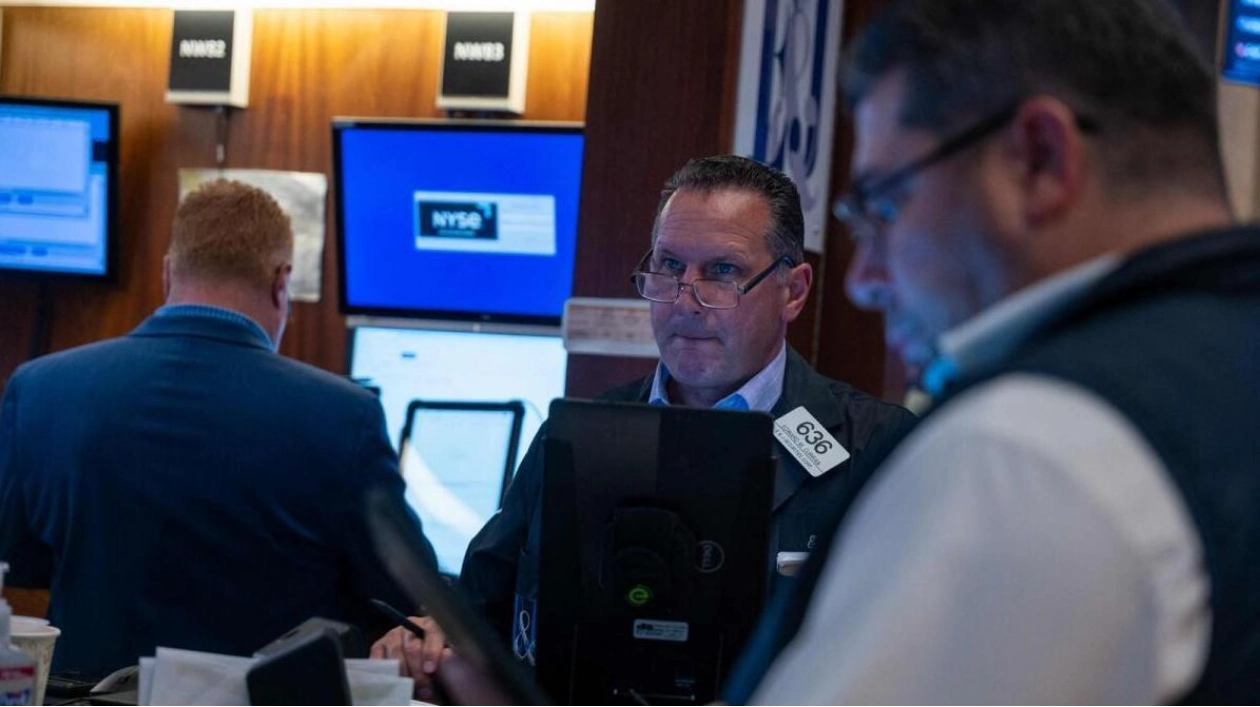Investors are abandoning some of this year's most popular investments as a decline in high-profile megacap stocks threatens to escalate into a broader selloff affecting everything from cryptocurrencies to gold, complicating predictions about the market's future direction. On Wednesday, Wall Street experienced its sharpest daily drop since late 2022, with the tech-heavy Nasdaq Composite falling 3.6% and the S&P 500 dropping 2.3%. Both indices partially recovered on Thursday afternoon.
The 2024 'everything rally'—which saw stocks, particularly tech, gold, cryptocurrencies, the dollar, and emerging markets all rise—has paused. A variety of factors have sparked concerns about the sustainability of Big Tech's inflated valuations against a backdrop of escalating U.S.-China trade tensions and lackluster earnings. The recent results from Tesla and Alphabet, the first of the 'Magnificent Seven' trillion-dollar companies to report, have unsettled investors ahead of next week's earnings releases, which include Apple and AI leader Nvidia.
“Investor positioning was heavily skewed towards risk, and there was a significant positive bias towards market valuations,” said Toby Gibb, head of investment solutions at fund manager Artemis in London. “It's challenging to predict whether the market will continue to correct.” Volatility has increased, with the VIX index experiencing its largest single-day rise in two years on Wednesday, and it is expected to rise further if markets continue to decline.
Mario Baronci, portfolio manager at Fidelity International, noted, “On the upside, markets are insensitive to valuations, and the same applies on the downside. The volatility compression seen on the way up reverses on the way down.” Wall Street's AI boom has created a bifurcated stock market, with megacap stocks leading the S&P's rise to record highs, while the majority of other stocks have stagnated.
Keith Lerner, co-chief investment officer at Truist Advisory Services, remains optimistic about the long-term prospects of tech stocks but acknowledges potential increased volatility. “Tech is undergoing a correction following its strongest two-month relative performance since 2022,” he wrote in a Thursday report. “Our baseline scenario is that the long-term bull market remains intact, but it often progresses in fits and starts.” Meanwhile, China's economy is decelerating more rapidly than anticipated, dragging down commodity prices. Europe's luxury megacaps have lost a quarter of a trillion dollars in value since their March peak.
Adding to the uncertainty is the volatile race for the White House, where Democrat President Joe Biden withdrew his support for Vice President Kamala Harris shortly after an assassination attempt on Donald Trump. The Republican candidate's anti-China stance and spending habits have negatively impacted global chipmakers and U.S. 30-year government bonds. However, some large investors believe this is a temporary bull market dip exaggerated by geopolitical rhetoric.
Richard Clode, tech portfolio manager at Janus Henderson Investors, stated, “I think these narratives are being used to justify what was likely just typical summer profit-taking.” As stocks and other 2024 high-performing assets like gold, which is up 14% this year, have suffered this week, small-cap shares and traditional safe havens such as the Swiss franc and the Japanese yen have surged. This reflects more than just a shift away from risk; these currencies have long been used to fund higher-yielding investments. With the Federal Reserve poised to cut interest rates and doubts about the strength of the equity rally, these so-called carry trades are unwinding, putting additional pressure on the dollar, although shorter-dated Treasuries have risen this week, pushing yields to near six-month lows.
Clode noted that summer trading is typically thin and marked by increased volatility in early autumn, a time when investors often take profits, which could present a buying opportunity. Many investors, accustomed to viewing pullbacks as temporary in a bull market and often more focused on price than valuation, might agree. “I call this the 'bitcoin syndrome'. When it declines, people don't mind. They believe it will eventually rise again, and a correction is a good time to re-enter the market,” said Fidelity's Baronci. However, Bitcoin itself has fallen 5% over the past few days to around $64,000. Trade Nation senior market strategist David Morrison cautioned against complacency.
“Further gains depend on solid second-quarter results and positive guidance for the current quarter. If that doesn't materialize, expect more profit-taking,” he said. “Investors have a muscle-memory for this type of scenario.”






